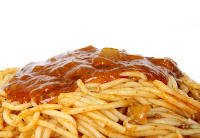Quit sugar, eat more fat, and become
slimmer and healthier.
Adapting to a
sugar-free diet that has far fewer carbohydrates than today's obesity-boosting
'normal' diets means having to substitute sugars with something else. That
'something' is healthy fats.
It might seem to be
rather counter-intuitive to eat fats in order to prevent obesity and lose
weight because it goes against dietary advice issued by health bodies and
governments. That advice is to make carbohydrates 50 per cent of our diets and
to limit the amount of saturated fats that we eat.
This advice is now
under scrutiny, and may turn out to be the 'direct cause' of the obesity
epidemic.
Everywhere you go - in supermarkets, at newsstands, in cafés and restaurants - we encounter them: sugar-loaded food and drink. There are tempting chocolate bars; there are cans of fizzy drinks; there are cakes and buns seemingly everywhere.
Even staple foods such
as bread, pasta, and potatoes hide their sugar content. That is because these
foods are 'complex' carbohydrates, which readily break down to become the
monosaccharide sugar glucose in the blood. If you are not active, the body
converts this high-energy sugar into fatty tissue under the skin.
Also, because many of
us eat convenience 'processed' foods, we become loaded with another
monosaccharide sugar called fructose. This particular sugar is much worse than
glucose for health because it does not get used up as energy. Instead, it goes
straight to the liver where it is converted into dangerous 'visceral' fat
around internal organs.
Even worse, fructose
is now understood to be just as bad as excess alcohol is in damaging the liver.
The rise in liver damage among populations appears to be attributed to excessive fructose intake. Fructose is added to processed foods for flavouring and other purposes too numerous to mention.
The rise in liver damage among populations appears to be attributed to excessive fructose intake. Fructose is added to processed foods for flavouring and other purposes too numerous to mention.
Indeed, in countries
such as the UK, net alcohol consumption has actually fallen over the past two
decades - yet liver damage is rising.
The good news is that
with the 'low carbohydrate, healthy fat' diet we can now begin the fight back
against obesity. Healthy fats are now the new secret weapon against sugar
cravings. There are many respected studies showing that fats are indeed very
healthy for us.
The dietary change
from carbohydrates to fats is what most people find difficult to understand as
well as to implement. This is because snacking on nuts or tubs of yogurt all
day will not help to lose weight because these foods contain many calories.
The 'low carbohydrate,
healthy fat' diet is designed to keep carbohydrate intake low for those wanting
to lose weight. This is set at a maximum of 50 grams a day of carbohydrates for
sedentary people, and up to 120 grams for active people.
If weight loss is not
of concern but eating healthier is, consuming 120 grams of carbohydrates each
day will be fine.
Here is an example of
a 'low carbohydrate, healthy fat' meal, so that you can get an idea of the
kinds of foods in this new diet plan:
Protein: poultry, fish, meat (beef, pork, lamb, venison,
etc): 100-150 grams per meal.
Vegetables: as many varieties and as much as is needed.
Eggs: up to three each day. Egg size is irrelevant.
Fats: a large handful of nuts (not peanuts unfortunately,
unless unsalted), or 2 to 3 tablespoons olive oil; 1 tablespoon of butter or
coconut oil; 30-50 grams of cheese; 3 tablespoons of full fat yogurt; 3
tablespoons of cream.
Fruits: only berries such as blueberries, blackberries,
strawberries, raspberries. 80 grams per day. (Apple and pear pulp contains
fructose.)
Carbohydrates: none if you want to lose weight. However, if you are
fairly active, a fist-size portion of cooked, dense vegetables per day is acceptable.
Options are: sweet potatoes, carrots, beets, parsnips, lentils, quinoa, or
buckwheat.
By the way, this diet
plan allows you have a 'Full English' fry-up! A couple of eggs fried in butter
or coconut oil, two or three slices of bacon, one sausage made of at least 80
per-cent meat, tomatoes, and a flat mushroom, make a perfect meal to start the
day.
That sounds like a
good way to begin the fight back against obesity.
by George Blays





